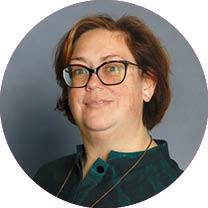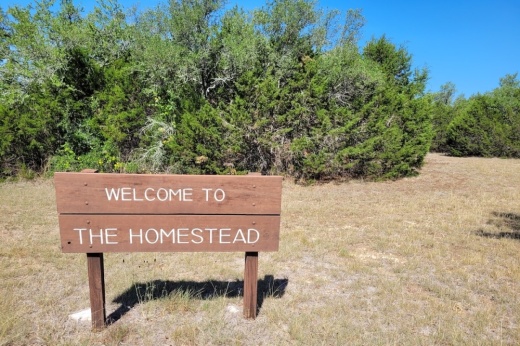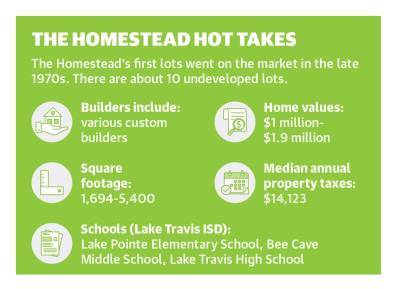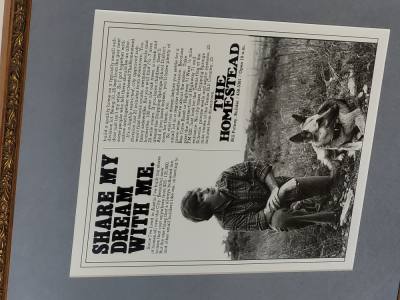“Bill said, ‘There’s got to be a place where my dog can be a dog,’” said Veronica Putney, who still lives in the home the couple built in the early 1980s.
Bill Putney’s dream of owning a Texas-sized homestead came true after attracting various investors and purchasing a 600-acre ranch as part of a real estate joint venture. Bill Putney then ended up selling those 1- to 9-acre lots at the starting price of $2,000. Today, homes in The Homestead have an average sale price of more than $1 million, and there are about 200 homes in the neighborhood.
An early ad for The Homestead touted the neighborhood as highly restricted and promised no amenities like tennis courts, swimming pools and sidewalks, but rather 100-plus-year-old oak trees, a creek and 20-mile views with room to ride horses.
Homestead resident Joe Inge said the equestrian nature of the community is one more thing that makes it unique.
“We can have horses,” he said. “There are certain constraints on how many horses based on the amount of land. I don’t think there are any other equestrian communities in Bee Cave.”
A hike and bridle path surrounds the western border of the community running through a canyon just south of Little Barton Creek.
Inge has owned his home in The Homestead for about six years, having moved into his home after about two years of renovations. He said being able to live somewhat independently off his land and not rely on the city for services such as electricity and water is another thing that makes The Homestead unique.
He said homeowners having their own well, rainwater collection and generators is pretty common in the community.
“The Homestead is going to be less dependent on what the city can provide to you and more dependent on what you can do for yourself,” he said.Inge and Veronica Putney said they both worry The Homestead will not always hold the same appeal for its owners.
On June 8, a landowner on High Canyon Pass requested a variance for their 3.08-acre lot. They wanted to split their lot into three parcels but were denied since the minimum required lot depth needed to be 200 feet. The landowner would have had 198 feet setback on one of the parcels.
Bee Cave Council Member and resident of The Homestead Andrew Rebber said when it comes to requesting a variance, there is a pretty hard line and “the rules are in place for a reason.”
“Once you start giving permission for 2 feet, then someone says, ‘Well, I’m going to lay 3 feet, and then suddenly you’re at 12 feet, because you continue to chip away.”
He said the neighborhood has rules in place that do not allow subdivision of lots, but says the rules are murky with no homeowners association to enforce the rules.
“Because we don’t have an HOA or an architectural committee to enforce [the deed restrictions], the city doesn’t look at our deed restrictions whatsoever,” Rebber said “They default back to the city regulations.”
As long as a landowner adheres to city code, the city has no choice but to approve the subdivision of lots, Rebber said.
Veronica Putney said there is a disconnect between the neighborhood’s rules and what the city would allow.
“It’s like a divorced couple,” she said. “Mother says be home at midnight; daddy says you can come in at 3 a.m. I mean it’s just silly.”
She said she is thinking of replatting her land in a way that it cannot be subdivided after she either dies or her land is sold.
“I’m thinking how can I prevent somebody from subdividing into two lots,” she said. “And I’m thinking how can I prevent somebody from subdividing because it’s been a home to deer and foxes and possums, painted buntings for 40 years or more.”
Veronica Putney said with many of the original Homestead owners growing older there is bound to be an increase of turnover in the near future. She said it is only a matter of time before lots start to become subdivided.
“Developers cannot stand the sight of unused land, and they just salivate when they come through here,” she said.







